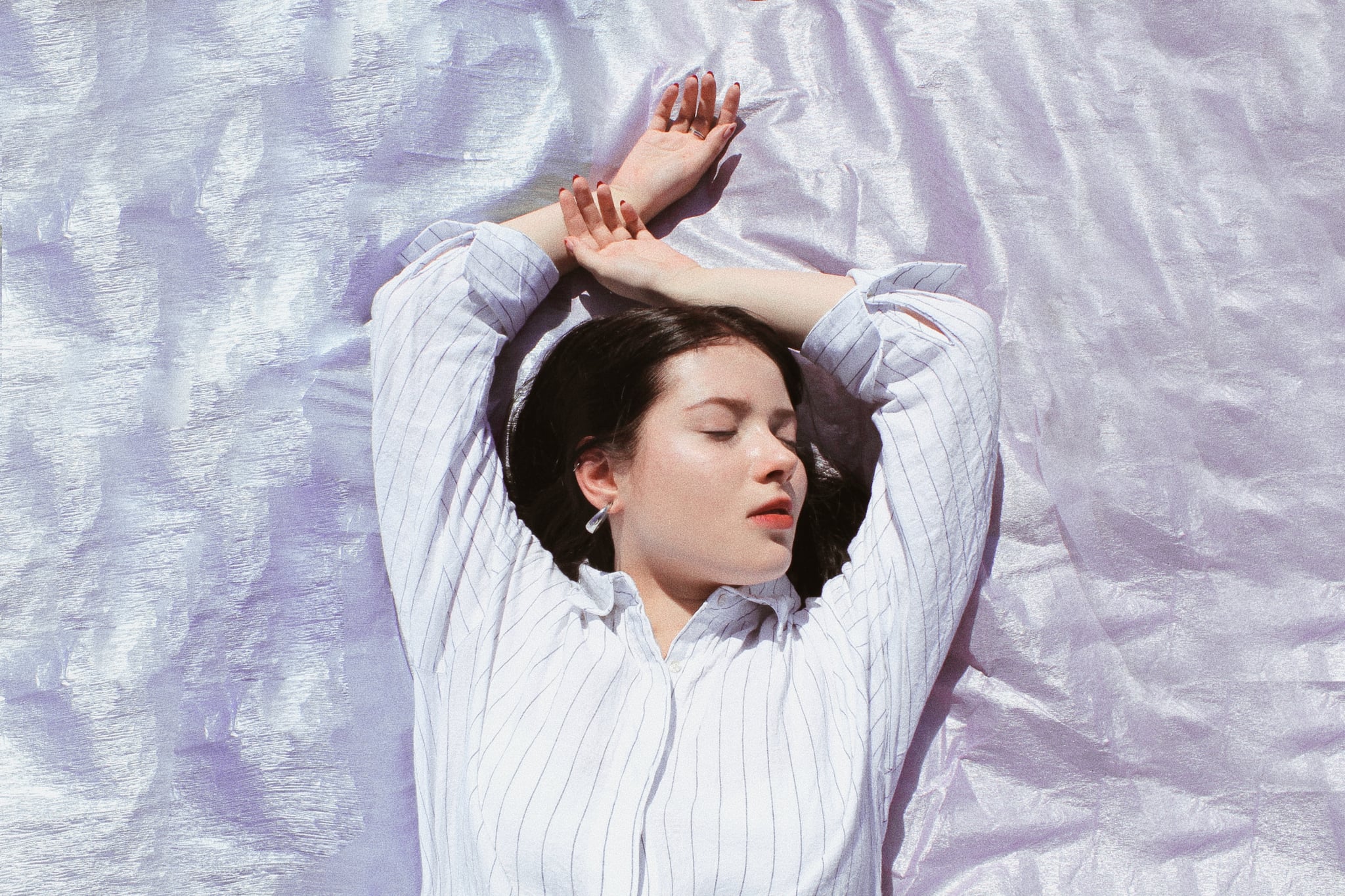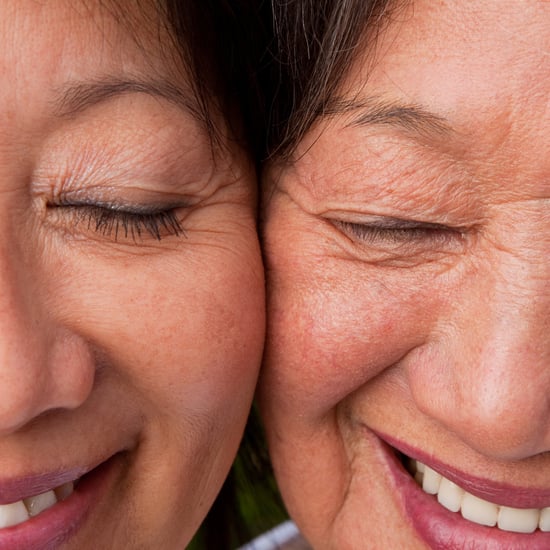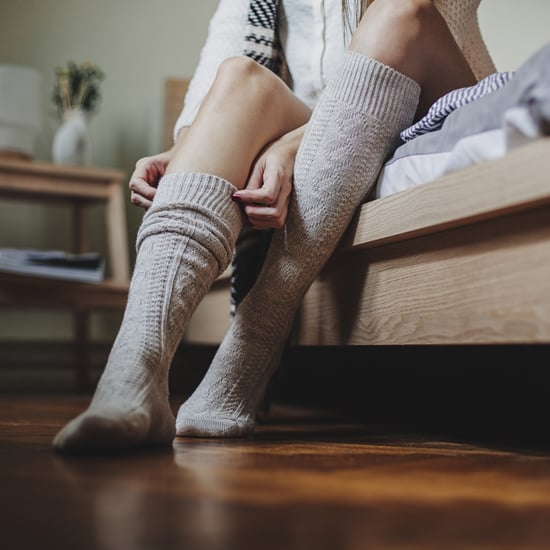How I'm Getting More Sleep in 2020
How to Prioritise Sleep and Finally Get the Rest You've Been Craving, According to Experts

I've never taken my sleep as seriously as I should. I get four to five hours of sleep on a typical weeknight, and while I know that's not enough, I've always shrugged it off; I know that I can skate by on so little sleep, even if it doesn't feel great.
It's not that I have trouble sleeping, but that I don't prioritise it. There's just too much I want or need to do at night, whether it's chores, or reading, or catching up on Love Island. I regret it in the morning, when I'm hauling myself out of bed at 5:15 for a workout, but I'll be back at it again that night, waiting until midnight or later to finally settle down.
When I went home for the holidays, though, I had enough of a scare to start rethinking my blasé attitude. Despite being on holiday, I physically couldn't sleep in any later than 5 or 6 a.m., even on days I didn't have get up early, even on nights I was up until 2 a.m. My body was so trained to get the bare minimum that it couldn't readjust or even try to make up my sleep deficit. And this wasn't a gentle, open-your-eyes-and-stretch kind of wake-up. I was jolting out of sleep like there was an alarm clock in my ear, filled with energy, too wired to drift back off. During the day, I was in a haze of fatigue and developed headaches anytime I tried to read or look at a screen.
The experience freaked me out enough that once the new year hit, I decided that the one thing I had to do in 2020 was get more sleep. No more procrastinating at bedtime, no more "getting by" on less than six hours a night. I couldn't give my full effort in anything I did, from work to workouts to relationships, if I was walking around chronically exhausted. I'd finally hit my body's limit, and it was the wake-up call I needed to overhaul my mindset around sleep.
Why Don't We Sleep Enough?
I struggle to get enough sleep, but it's not because I physically can't sleep — it's just a question of time and priority. According to Neda Gould, PhD, a clinical psychologist and director of the Mindfulness Program at Johns Hopkins, this is pretty common. Most of us have dozens of demands on our time every day, from work obligations to family care to social events. "There's too much to do and not enough time," she explained.
Plus, it's easy to get distracted by other things instead of going to bed. "There's so much stimulation available that sometimes it's hard to pull ourselves away from it," Dr. Gould said. Personally, I get caught up in an endless string of YouTube videos, or else pick up a book and can't put it down until it's well past my bedtime. There are texts and emails to answer, and it's well-documented that blue light devices (phones, TV screens, computers) can have a detrimental effect on your sleep.
You've likely felt the health effects of these distractions and obligations before. "Feeling so fatigued really impairs our focus, our memory, and our ability to stay resilient," Dr. Gould said. "It runs us down."
How I'm Getting More Sleep in 2020
If you, like me, are ready to start getting serious about sleep this year, Dr. Gould and other sleep experts offered a few ways to make it happen.
- Break down your day, activity by activity. Map out a typical day for you. Ask yourself what you can do more efficiently or cut out altogether, Dr. Gould said. For example, I can definitely cut down on my YouTube time before bed, and I could start on dinner more quickly if I didn't flop on my bed to check Instagram as soon as I get home. You can also look for tasks at work or chores at home that you can share with or delegate to co-workers, roommates, or partners.
- Limit caffeine, alcohol, and heavy foods before bed. Caffeine can stay in your system (and keep you awake) "for as long as six to eight hours," Alon Avidan, MD, MPH, director of the UCLA Sleep Disorders Centre, told POPSUGAR in a previous interview. Alcohol can also lead to fragmented sleep, Dr. Avidan added, while eating heavy, fatty foods close to bedtime can cause discomfort or issues with reflux.
- Create a bedtime routine. Plan out when you're going to brush your teeth, set down your phone, read, and shut off the lights. Do your best not to stray from your schedule by more than an hour, Dr. Avidan said. It might be hard to stick to the routine at first, but it's like muscle memory; once you do it enough times, you'll find it easier to start shutting down at a regular time. Need some inspiration? Here's one writer's fail-safe bedtime routine that has her asleep by 10:30 every night.
- Turn off electronics an hour before bed. Studies have shown that just two hours of blue light exposure in the evening (two Netflix episodes, say) can suppress your body's production of melatonin, a hormone that helps regulate your sleep-wake cycle. We're not trying to hate on your electronics, we promise — but they really can get in the way of getting restful sleep. Try substituting some of your Netflix or Instagram time with reading or, if you're really in for a challenge, meditation.
- Turn off the lights 15-20 minutes earlier. Making huge changes to your routine can be daunting and ultimately self-defeating. "I recommend making smaller changes," Dr. Gould told POPSUGAR. Aim to go to bed just a few minutes earlier, starting in small increments and slowly building up until your bedtime is where you want it to be. (For inspiration, read up on this writer's experience going to bed 20 minutes earlier for a week.)
- Remember why you're doing this. If you, like me, are your own worst enemy in terms of getting enough sleep, Dr. Gould said to ask yourself the key question: why do you want more sleep? Do you want to get rid of headaches, have more energy, reboot your metabolism — or all of the above? Finish the sentence, "If I could get more sleep, then. . ." There's a reason why you have that goal, Dr. Gould said; don't lose sight of it.
At the end of the day, it's about prioritising sleep as much as you can, both physically and mentally. 2020 is the year I'm committing, finally, to doing that and getting the rest I need at the end of the day. Ready to join in? Here are more must-do sleep tips to make it happen.









